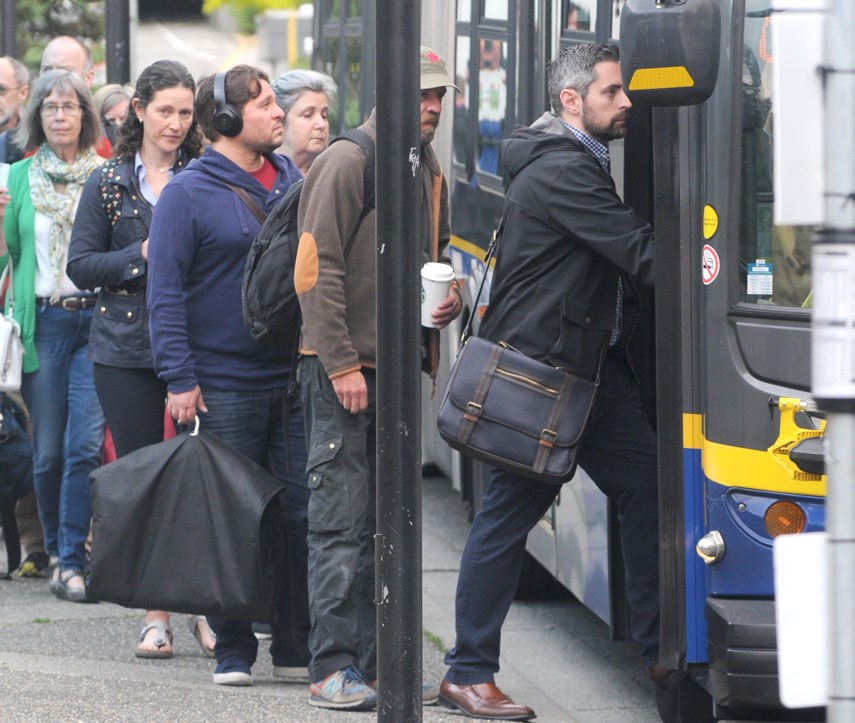The District of West Vancouver is handing over the keys to the 257 Blue Bus to TransLink.
Starting Sept. 1 Coast Mountain Bus Co., TransLink’s largest contractor, will take over operation and maintenance for the express bus connecting Horseshoe Bay to downtown Vancouver.
“The change is going to be seamless for our customers. In fact, there is going to be increased capacity, consistency and frequency of service on the 257,” said Chris Bryan, TransLink spokesman.
Right now, the route is served by two articulated buses and three 40-foot buses. When Coast Mountain takes over, 257 riders will have a little more elbow room on five articulated buses.
The Blue Bus is the last municipally owned bus service in operation under the TransLink umbrella. Its staff are District of West Vancouver employees, although the municipality is reimbursed fully by TransLink for their costs. Operational decisions about routes and schedules are still made in collaboration with TransLink as they are in other municipalities.
Unlike TransLink though, Blue Bus has its own depot and maintenance yard on the North Shore. But that facility on Lloyd Avenue no longer has the capacity to deal with the articulated buses, according to the district.
“It was never built to maintain the number of buses that we currently have in operation,” said Donna Powers, District of West Vancouver spokeswoman. “The more complex the buses get and the bigger they get, the more of a challenge it puts on the size of our operation. This is really about making Blue Bus sustainable when there is just more than we can operate and maintain properly to the highest level that we would like to.”
All the 257 buses will be based and serviced at the Burnaby Transit Centre off Boundary Road when the change comes into effect, the same depot that houses all of the North Vancouver buses since TransLink closed the Third Street bus depot in 2016.
“We certainly have more maintenance resources available to us so we’re able to turn around that maintenance more quickly, which in turn ensures better reliability of service,” Bryan said.
Blue Bus drivers will be given the option of staying within the Blue Bus ranks or they will be hired by Coast Mountain if eligible, Bryan said. The two groups are, however, represented by two different unions.
Reached for comment, the Amalgamated Transit Union local 134, of which Blue Bus drivers are members, president Geoff Devlin said the union “is not pleased” with the decision but because it did not result in direct job losses, there was nothing the union could do.
Steven Sutherland, president of Unifor local 111, which represents Coast Mountain drivers, said those members joining Unifor will be well-treated and can expect similar pay and benefits.
But, he said, it makes no sense for West Vancouver to have its own bus service while the rest of the Lower Mainland uses another operator.
“It’s sort of a mess. All of us should be integrated. Having West Vancouver with their own little entity out there doesn’t work with the integration of transit,” he said.
Powers said having the Blue Bus remains a point of pride for West Vancouverites.
“It’s been operating since 1912. It’s the oldest municipally owned bus service in North America. They have a personality, for sure. It has different personality that Coast Mountain and I think West Vancouver residents are very proud of that,” she said.
In 2016, the 257 route had 1.1 million boardings – an average of 3,100 per day.
“It’s definitely one of the most crowded buses during peak periods,” Bryan said.



